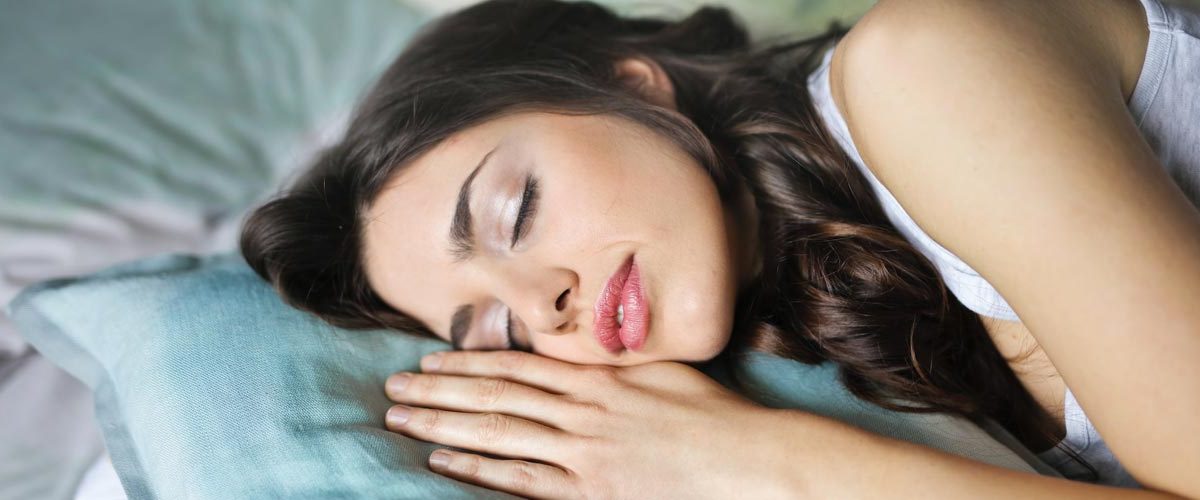Everyone of us spends upward of one third of our lives in the bedroom sleeping. A good night’s sleep is extremely important to the well-being of all of us. But, while most of us think of sleep as a time of shutting off our minds, in fact that is not the case. In reality, our minds are quite active during sleep. And, enough or not enough sleep can affect physical and mental health and provide a chance to restore energy, cope with stress, solve subconscious problems and recover from illness.
There are two cycles one goes through while sleeping. There is the non-rapid eye movement sleep cycle and the rapid eye movement (REM) sleep cycle. Your body and brain act differently during each of these cycles.
Why Do We Need Sleep?
There are many reasons for a good nights sleep.
In the case of children, sleep supports growth. The body releases growth hormones during a child’s sleep. In addition, the body increases production of proteins, which are needed for cell growth and damage control.
Sleep affects quality of memory and our ability to think clearly. A person who is sleep-deprived can experience mood swings. Sleep repairs nerve cells and makes sure they perform at their best. A deprivation of the REM cycle of sleep can actually shorten a person’s lifespan, harm the immune system and subject the person to various adverse health conditions.
So, What Happens in the Brain During Sleep?
The study of sleep is ongoing and there is a lot that still needs to be learned. But, some of what is known is that brain chemicals are very involved in our sleep cycles. Chemicals known as neurotransmitters help the nerves communicate. They control wakefulness, depending on which nerve cells they’re acting on.
Neurons in the brainstem, in other words, where the spinal cord and brain join, produce neurotransmitters called norepinephrine and serotonin. These keep our brain active when we’re awake.
Neurons at the base of the brain help us fall asleep. Basically, they work by turning off the signals that keep us awake.
The Stages of Sleep
There are a total of four stages of sleep, divided into two phases:
Non-REM phase happens first and goes through three stages. Deep sleep happens in the last two stages of non-REM. The first stage lasts about 10 minutes. There is little eye movement, heart rate slows and body temperature decreases. The third stage is a deep sleep and if someone wakes you during this time, you may feel somewhat disoriented. During Non-REM, the body repairs body tissue, builds muscle and bone and strengthens the immune system.
The REM phase of sleep, brain activity increases and sleep is generally not as deep. Body movements are not as active. It lasts about 10 minutes during the first REM phase and gets longer during the subsequent times during the night. During REM, you experience eye movement, faster breathing, increased heart rate and blood pressure and dreaming.
Good Sleeping Habits
- Create a comfortable sleep environment. This is where Vermont Bedrooms can help. Sleeping on a new mattress that is correct for your personal body is important for a great night sleep. Either shop through our online store or stop in to our physical location, located at 159 US Route 4 East, Rutland Town, Vermont. One of our knowledgeable staff can consult with you on the best mattress for your needs. In addition, turn down the lights in your room, avoid loud sounds and keep the room at a comfortable temperature and humidity.
- Try to go to bed and wake up at a relatively routine schedule.
- Do your next day’s planning earlier in the evening so you don’t spend time in bed doing so. Bed time should be a time of clearing the mind, not working out of the next day’s events.
- Although regular exercise is important, try to avoid scheduling any workouts just before bedtime.
- If possible, engage in a relaxing activity just before bed, such as a warm bath, reading, etc.
- If you’re having routine trouble getting to sleep, or you routinely feel extra drowsy during the day, speak with a sleep specialist. There may be something important to address, such as a sleep disorder.
At Vermont Bedrooms, we take your sleep seriously. While we can’t solve any health issues regarding your sleep routine, we can provide a great sleep environment for you with our selection of mattresses and bedroom furniture. When it’s time to purchase your next mattress, feel free to shop at our online store or if you’re in the area, stop by our physical store at 159 US Route 4 East, Rutland Town, Vermont.


